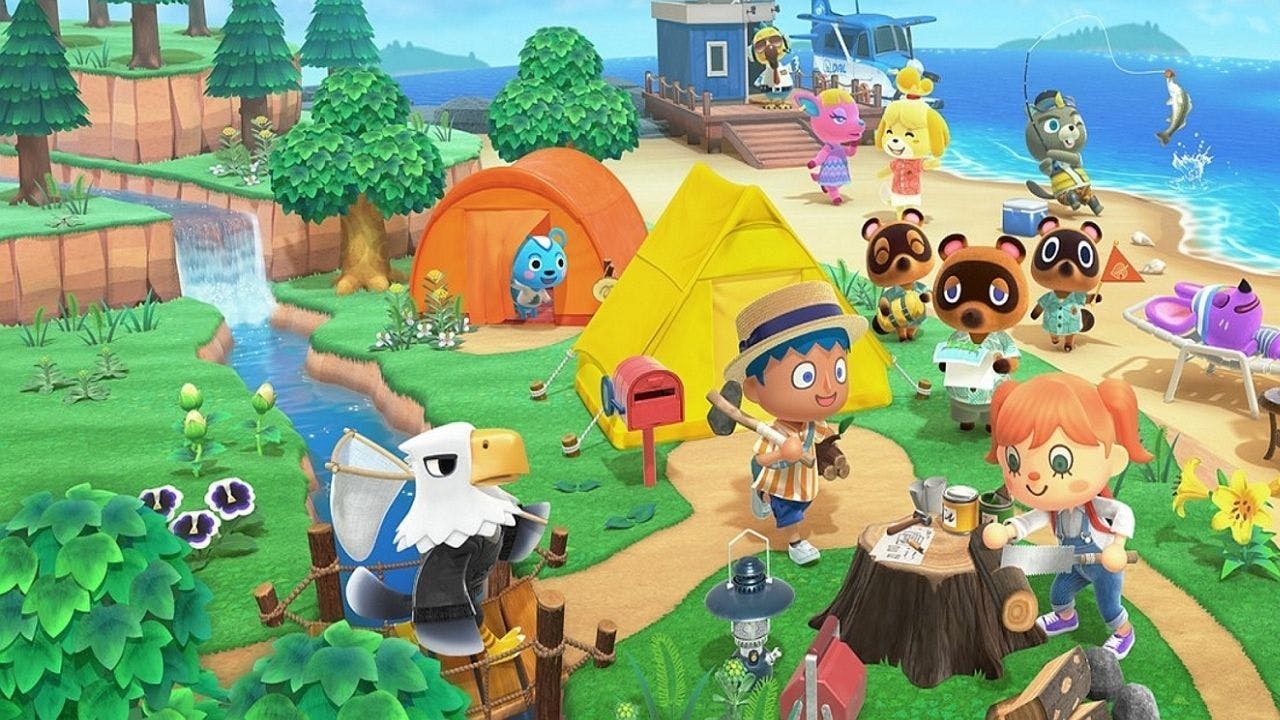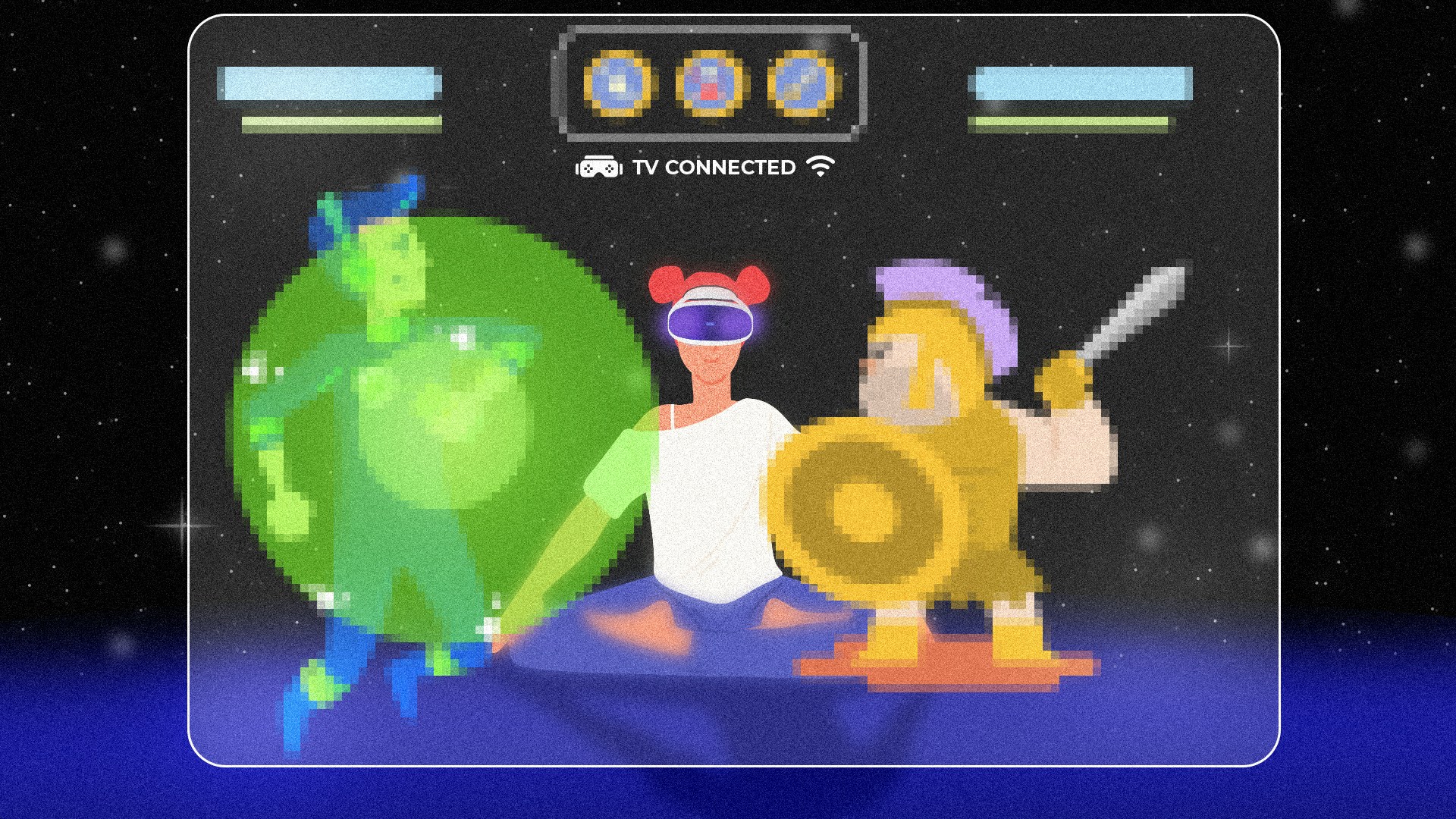In Socially Distanced Times, Connected Games Emerge as Key Social Spaces

Gaming is often characterised as a solitary, even alienating pursuit, but a 2014 study found that more than 70 percent of gamers play with a friend.
In "Video Games Are Not Socially Isolating," psychologist Linda Kaye argues that, far from being “anti-social spaces,” modern video games provide a “wealth of social opportunities and functions.” Kaye, who researches cyber-psychology at Edge Hill University in the UK, told L'Atelier that “games actually bring people together, even if it's not physically.”
“The fact that you're all gamers brings you together psychologically," she said. Moreover, gaming provides a “sense of identity and community.”
If home is a person's "first place" and work our "second place," online games can be considered a third place, “where people can meet up, hang out, and play together much like people do in local bars and pubs,” Kaye observes in her paper. “Online games may be superior to more traditional ‘third places’ (such as local clubs), as they can connect people regardless of their geographical location.” Games function so well as a sociable third place that some people log in primarily to meet others and chat; the game itself becomes almost a secondary concern.
And with the global coronavirus lockdowns of 2020, the value of video games as a social meeting place has only grown.

From World of Warcraft: The Battle for Azeroth, courtesy of Blizzard Entertainment.
THE PIVOT TO SOCIAL GAMING
The release of World of Warcraft (WoW) by Blizzard Entertainment in 2004 was a landmark in social gaming. It wasn't even the first massively multiplayer online role-playing game (MMORPG); there had been online multiplayer games before this, even as far back as 1980, with MUD (Multi-User Dungeon) the first that people could play together over the internet (or ARPANET, as it was back then).
WoW was also preceded by games like Ultima Online and EverQuest. But it changed the gaming landscape with unprecedented success: by 2010, it had an astonishing 12 million subscribers. And although many of its players were laser-focused on levelling up their characters and participating in raids against rival guilds, there was also a sense that WoW was a social hub, a place to catch up with friends as much as smite enemies.
Ben Werbner is the author of I Am Orazachi, a book detailing his experiences working as a Game Master at Blizzard, sorting the many disputes that erupted between players. When not settling arguments in WoW, he obsessively played it on his spare time, logging thousands of hours and fighting his way into top-ranked guilds. But sometimes he would forgo his high-level main character and instead log on with a low-level "alt," or alternative character, just to hang out with friends.
“I would log on to an alt character in just a casual friendship guild where most of my friends were,” says Werbner in an interview, explaining this was by necessity: “Unfortunately, I was split off from them because they weren't able to get into the guild I was in.” Thus he divided his time between his high-ranking guild and the more casual guild, just to hang out.
WHEN DOES THE PARTY START?
Werbner says socialising would usually begin outside the game, on messaging services or via voice over Internet protocol (VoIP) apps like Ventrilo or, more recently, Discord. Friends would then agree to meet in-game, with WoW functioning almost like a rendezvous point. Werbner says while it's possible (if improbable) to just bump into people while playing WoW, socialising is more like a party you're invited to beforehand, rather than a bar you might duck into to see who’s around.
This is reflected by most players choosing Discord for voice chat rather than WoW’s built-in voice chat function, introduced in 2016. Discord lets you choose which friends are part of the conversation, whereas Blizzard’s in-game voice chat was initially designed to let anyone near your character join in. As the player Atroxx noted on the Blizzard forums in 2018, “It doesn’t matter how well this feature works and it doesn’t matter how crystal clear the audio is, I will never, ever willingly join a voice chat service with a bunch of strangers.”
No one wants gatecrashers at their party.
TEXT BEFORE YOU CALL
A hierarchy of communication reveals itself here, beginning with text messages or chat apps, and ending with prearranged in-game meetups involving conversations over voice chat. It reflects how communication has changed over the past two decades, with younger generations less likely to "cold call" friends and more likely to arrange a time to chat first, via text message. Indeed, there’s a good chance that a spontaneous phone call won’t even be answered.
"Off-game" planning and socialising can be just as time-consuming and involved as the game itself. In No Man’s Sky from Hello Games, players created elaborate galactic civilisations that thrive as much on community forums like Reddit and Amino as in the No Man’s Sky universe itself. The Galactic Hub was planned and coordinated on Reddit, with members guiding newcomers to the nascent civilisation by arranging in-game meetups, then giving new players a "taxi ride" to the Hub system.
More recently, in 2020, the UNity1 project was coordinated on Amino, with players aiming to create an idyllic system where people could meet and construct replicas of familiar buildings and places. The warmth and openness of this community has been especially important in the context of the isolating lockdowns brought on by Covid-19.
"Right now, with all this going on we need an outlet for continuing to talk with people,” UNity1 resident AMandy226 told Eurogamer. “A lot of the time, it's not even about No Man's Sky. We talk about our families or what's going on in our neighbourhood."

One of the many dancing GIFs that Fortnite has inspired, courtesy of Epic Games.
THE FIRST METAVERSE
That sometimes it’s not about playing, but simply hanging out with friends, comes up again and again across different games—notably for Fortnite, Epic Games' global phenomenon. “Not only is Fortnite the new hangout spot, replacing the mall, Starbucks or just loitering in the city, it's become the coveted 'third place' for millions of people around the world,” said journalist Owen Williams in a 2019 blog post. He organises Fortnite meetups with friends using apps like Telegram, Discord and Slack.
Fortnite has embraced its status as third place, to the point where its creators often deliberately sideline the game’s signature combat in favour of more social affordances. Over 12 million people logged in to watch an in-game concert by US rapper Travis Scott in 2020, during which the ability to shoot other players was disabled. A similar concert, by dance music artist Marshmello in 2019, attracted 10 million viewers, and three million people logged in to watch a clip of the upcoming movie Star Wars: The Rise of Skywalker later that year.
The notion of Fortnite as not merely a game, but a place that attracts social rituals, prompted LEGO Ventures, the investment arm of the Danish toy company, to take an interest. “We see Fortnite taking a pretty good stab at making the first credible metaverse, where people can play and watch, and share and socialise together,” said Rob Lowe, head of value creation and marketing at LEGO Ventures, in a talk for the online GamesIndustry.biz Investment Summit.

Animal Crossing image, taken by author; courtesy of Nintendo
LIFE MOVES ONLINE
While less bombastic than Fortnite, the game Animal Crossing: New Horizons also blurs the line between real life and online spaces. This pastel-hued, family-friendly game about growing vegetables and decorating houses launched in March 2020, just as citizens were ordered to stay home as a result of Covid-19. It offered a much-needed way to connect with friends in isolation. Players organise in-game social events, like weddings and birthday parties, since they can't meet in person.
Writer and presenter Jordan Erica Webber devoted five episodes of her podcast, Talking Simulator, to the role that Animal Crossing: New Horizons has played in connecting people during the pandemic.
“Especially at the beginning of lockdown, it was really beneficial to have this game that so many of my friends were playing,” she told us, “not just because it gave us a place to gather as we couldn't in physical space, but because it provided a shared distraction.”
Although she notes that most of her Animal Crossing meetups are related to in-game mechanics like selling turnips, she has also attended several purely social gatherings. One friend set up a record-swapping party, “where one person took on the role of DJ and played music while others danced," she recalls, adding that there are now so many events that it’s easy to miss some.
What sets Animal Crossing apart is its wide-ranging audience: its safe, cosy islands appeal equally to children and adults. Perhaps this is a template that will be used more often as games become more important as social spaces. The success of the title shows its formula has broad appeal: Nintendo revealed in June 2020 that Animal Crossing: New Horizons sold 22,4 million copies in just four months, putting it well on the way to becoming the bestselling game on the Nintendo Switch.
Kaye observes that the demographic of gamers is changing. Gaming is becoming a much more accepted activity to do with family and friends; as such, the future of social gaming may likely reflect a more family-friendly setting, rather than the stereotypical battlefield.
“I think these more casual games,” she says, “the ones that are widening the demographic of who might be attracted to play, is where the development can be.”
09 Dec 2020
-
Lewis Packwood
Header illustration by Debarpan Das
DATA-DRIVEN TECH & SOCIAL TRENDS. DISCOVERED WEEKLY. DELIVERED TO YOUR INBOX.
02/03
Related Insights
03/03
L’Atelier is a data intelligence company based in Paris.
We use advanced machine learning and generative AI to identify emerging technologies and analyse their impact on countries, companies, and capital.


